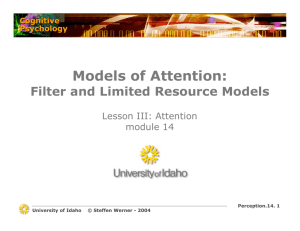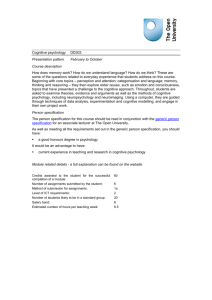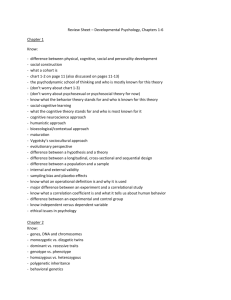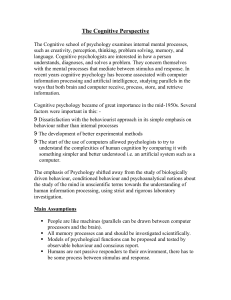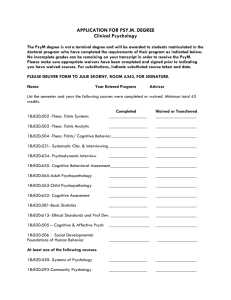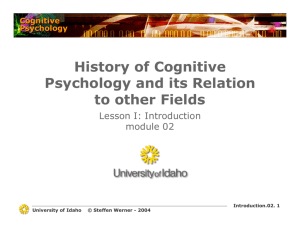Printable Notes - University of Idaho
advertisement
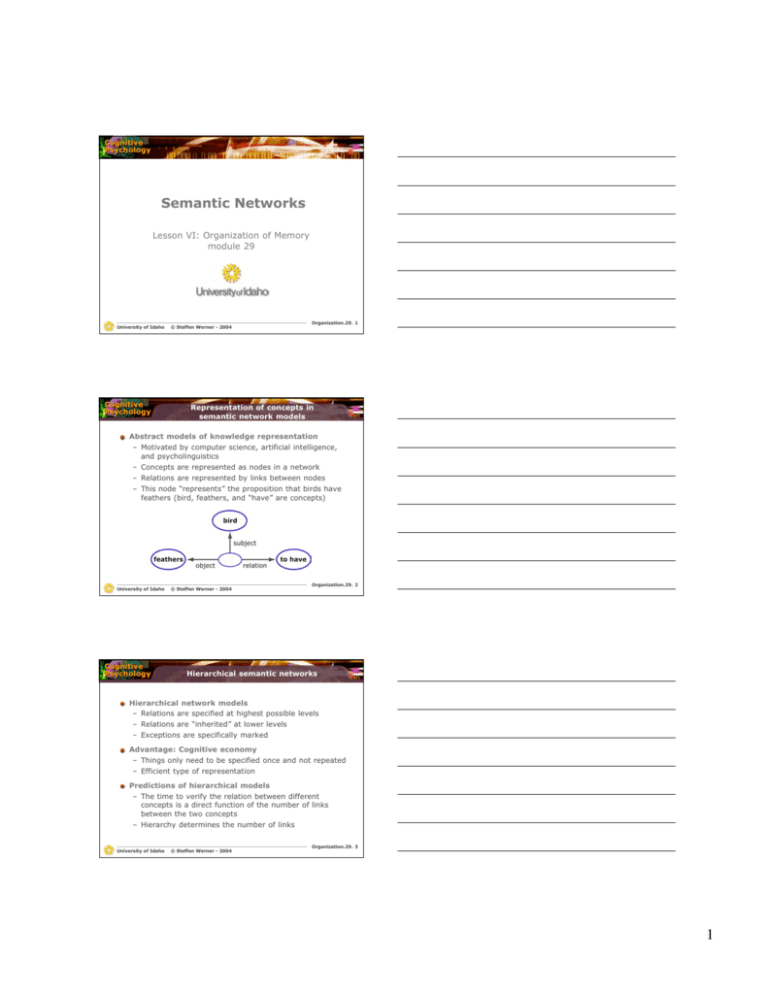
Cognitive Psychology Semantic Networks Lesson VI: Organization of Memory module 29 University of Idaho Cognitive Psychology © Steffen Werner - 2004 Organization.29. 1 Representation of concepts in semantic network models Abstract models of knowledge representation – Motivated by computer science, artificial intelligence, and psycholinguistics – Concepts are represented as nodes in a network – Relations are represented by links between nodes – This node “represents” the proposition that birds have feathers (bird, feathers, and “have” are concepts) University of Idaho Cognitive Psychology © Steffen Werner - 2004 Organization.29. 2 Hierarchical semantic networks Hierarchical network models – Relations are specified at highest possible levels – Relations are “inherited” at lower levels – Exceptions are specifically marked Advantage: Cognitive economy – Things only need to be specified once and not repeated – Efficient type of representation Predictions of hierarchical models – The time to verify the relation between different concepts is a direct function of the number of links between the two concepts – Hierarchy determines the number of links University of Idaho © Steffen Werner - 2004 Organization.29. 3 1 Cognitive Psychology Hierarchical model Collins & Quillian (1969) Strict hierarchy of concepts – Inheritance leads to cognitive economy – Rigid organization of knowledge University of Idaho Cognitive Psychology © Steffen Werner - 2004 Organization.29. 4 Sentence verification times Collins & Quillian (1969) – Verification times depend on the distance (number of nodes) between concept and property / superset University of Idaho Cognitive Psychology © Steffen Werner - 2004 Organization.29. 5 Semantic network models Fate of strictly hierarchical models – Even though they have great “economy”, they often make wrong predictions – It takes longer to verify “a lion is a mammal” than to verify “a lion is an animal” – Frequency of use needs to be represented Non-hierarchical models, tangled hierarchies – Relations can be defined at any level – Increased flexibility where a particular piece of knowledge is represented Links between nodes can be weighted – Concepts that are strongly associated might have stronger connections University of Idaho © Steffen Werner - 2004 Organization.29. 6 2 Cognitive Psychology Spreading activation theory Spreading activation - processing assumptions – Many semantic network models assume a spread of activation as means of information processing – Activation nicely explains priming effects University of Idaho © Steffen Werner - 2004 Organization.29. 7 3
